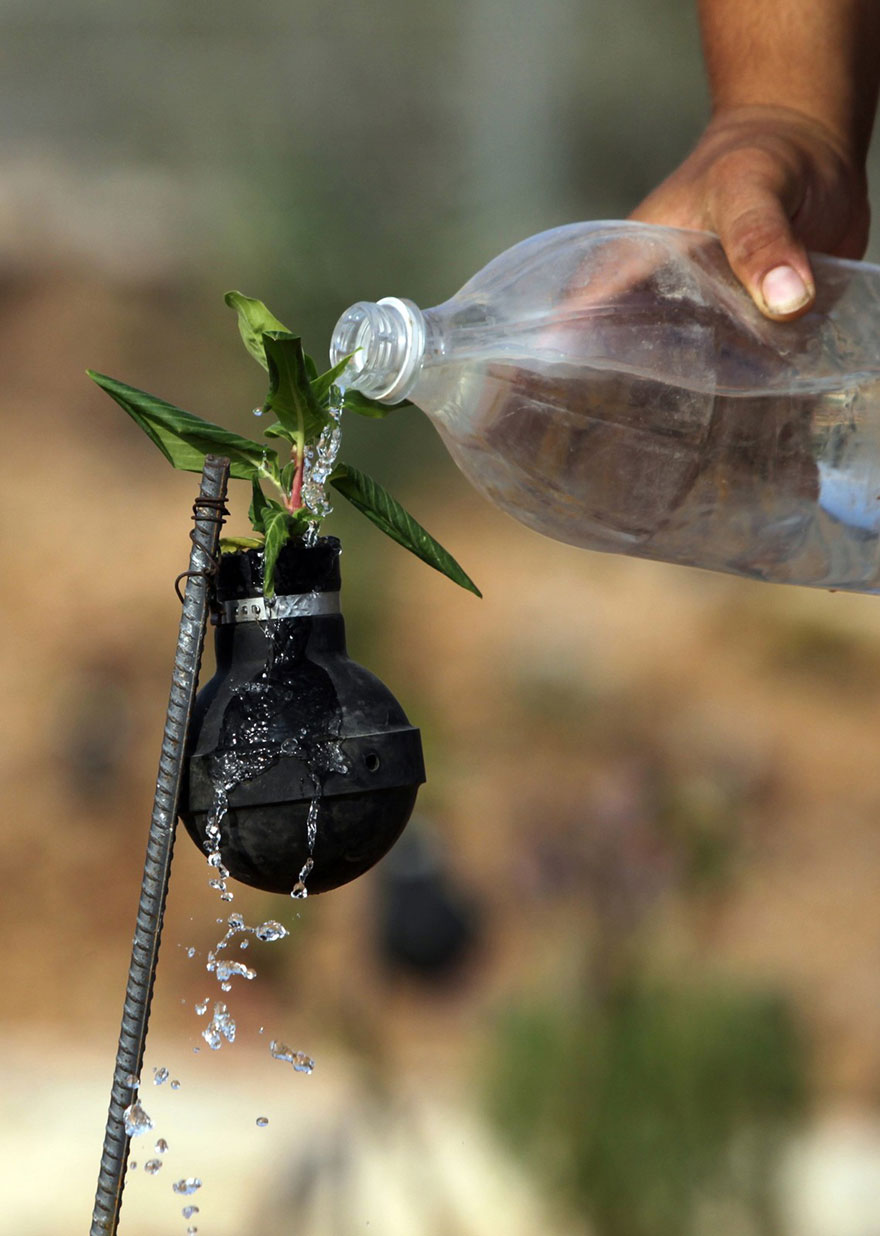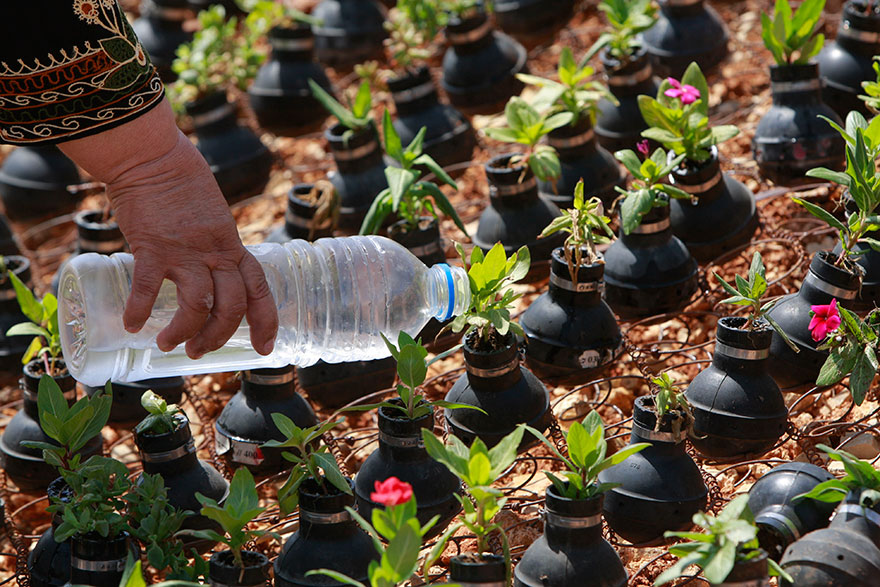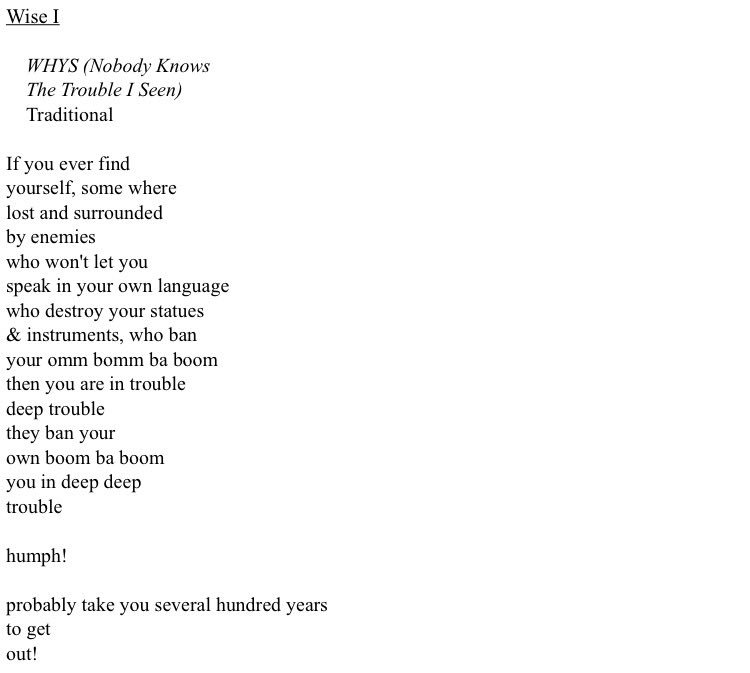i
The urgency to write has never felt more acute. To attend to, even through what seems to be utter powerlessness and fatigue, the atrocities being felt globally on both large and small scales is necessary. But how to do so, how to respond with a precision and clarity and depth and nuance and rigor. And, most importantly, care. To want to respond with care. And yes, as a modality of care, to respond with beauty. To desire the beautiful against violence and death. To trade beauty for ashes, to trade joy for mourning. All this is desirous now, even within – and pertinently because it emerges against – such varied, interrelated, large and small sorts of suffering. To imagine the otherwise, to live into it, to love and want it, to find that it already is and has always been enacted. Has always been with us. All it takes is a looking, a listening.
We come from and are within the tradition of the otherwise. The pattin juba. The work song, the raised spiritual. The hallelujah anyhow, nevertheless, in spite of. The moan, the shout. The play cousin and auntie, the mee-maw, mom-mom. The pop-pop. The “she be liiiiiike.” The habitual be.We come from and are and enact and announce what Amiri Baraka called the omm bomm ba boom. And this omm bomm ba boom is an energy, a force of vitality, flow. Keeps us alive against wishes for premature, social and physical death. Somehow, we make it.Violently excluded through law, as law, violently targeted by law, our flesh severed and ripped and chained; cuffed, ghettoed, held in occupation in militarized zones both here and there. The history of black flesh in western civilization is the perfecting of carceral and militarized terror, from pattyrollers to paddy rollers. The history of indigenous flesh in western civilization is the perfecting of genocide, of total obliteration and intense, intentional acts of forgetting. Access to resources – health, education, financial, food, shelter, air – obliterated, obliterated only insofar as we ever actually had full and free access in the first place. Yet the violently excluded created in the otherwise, with, in and through the verve of the oom bomm ba boom, not merely from or because of duress. But created because beauty and joy are there, flourish there, in the omm bomm ba boom. Created with, in and through because the omm bomm ba boom does not find its genesis or originary moment in acts of violence but, rather, rises to the occasion of violence. It is what we have, it is what we outpour. The violence of law cannot create joy or beauty. No wonder why it’s across the railroad tracks, in the zones of the excluded, that those considered to have everything eternally return to sit with, learn from, voyeuristically interrogate and almost always misappropriate those of us considered to have and be nothing.Africville. Austin. Brixton. Brooklyn. Detroit. Gaza. Harlem. New Orleans. Sapelo Island. Silverlake.
The omm boom ba boom is a resource of perpetually imagining, while enacting in such imaginative drive, an otherwise. Here, now. Then, there.
ii
There is an episode of “Twilight Zone” that I remember watching when I was a very young child. Titled “A Little Piece and Quiet,” the episode is about a housewife named Penny that was bothered by the noisiness of the world in which she lived. Awakened daily by a loud alarm clock, barking dogs, phones ringing, loud children and annoying husband, Penny simply wanted a space of reprieve, a Sabbath from noise, from the daily, ongoing clamor that seemed to her to be inescapable. While digging in her garden one day, she found a box containing a pendant and begins to wear the newfound jewelry. Later in the day, while her children were fighting and her husband was pestering her about his ripped shirt, she screamed “shut up” and time stopped. Finally, a moment of peace and quiet. The phrase “start talking” would allow time to begin again.But the episode is not only about loud children and the complaints of a husband. It is fundamentally about warfare and fear about nuclear weaponry. First aired in 1985, the episode is primarily about tensions between the United States and the Soviet Union. Throughout the episode were anti-nuclear weapons and Penny stopped time in order to be unbothered by them while shopping. The show ends with a problem: the United States is being bombarded with missiles from the Soviet Union and Penny froze time just … in time. She left the house to see people standing in the street looking at a missile just over the city about to make contact and, it is presumed, destroy everything and everyone. She had to decide if she would live in the quietude of this stopped time or if she would allow for the destroying of the world. In either case, sociality would be fundamentally annihilated.
This doomsday analysis where there is a rock and a hard place, where there are two insufferable options, seems to animate lots of contemporary “life after the end of the world” movies and television I’ve seen recently. Movies like Dawn of the Planet of the Apes, Snowpiercer, The Dark Knight Rises and television shows like The Leftovers each appear, in their own way, to exist within the logic of desiring a little peace and quiet that is nothing other than the choice between being utterly destroyed or being absolutely solitary. Each movie has its own plot, of course, so I’m conflating a bit for a larger point. These depictions of life after revolution, after the end of the earth, never disrupt the logic of whiteness and neoliberalism after the so-called revolutionary moments are enacted, after the “end of the world” as is currently known. The Dark Knight Rises, for example, could not decided if it wanted to be a critique of Wall Street and hypercapitalism, and the exploitation of the masses or if it wanted to be a critique against the masses, the commons, that produce such revolutionary pushback against the neoliberal state. Snowpiercer could only imagine getting off the train through side doors, never imagining people to be otherwise than self-motivated and self-absorbed when given the opportunity to lead. Planet of the Apes simply makes animals that have been exploited mirror the selfish, egotistical impulses of bad humans such that “revolution” that would overthrow inequitable power is co-constitutive with egotistical creatures that want to, excuse the term, “ape” the bourgeois subject of enlightened thought. And The Leftovers simply has lamentable characters that have nothing celebratory to give, have nothing other than melancholy through which to work, nothing but sadness, depression and despair.
Each depiction, in other words, is grounded in a refusal to think the radical tradition, the black radical tradition, the radical imagination of the otherwise that has always been enacted against the logics of western civilization’s theologies and philosophies of bourgeois subjects, rugged individuals, displacements from property, thefts of land. Each imagine from the axiom and necessity of whiteness and neoliberal anti-sociality as the only mode of organizing. They each grapple with the deleterious effects of western civilization without interrogating the grounds of this mode of civilizing the world. As such, each implodes and becomes undone by internal illogics, by internal conflictual loyalties. Each only imagines a kind of personhood that produces revolutionary upheaval or life after crisis through the perpetuation of individualist projects of narcissism and egotism. None of them considers the hard work and necessary sociality of the otherwise. Each can only imagine through forcing imagination to be within the bounds of the given, which is the known, world.These films reflect our world, fearing the leaps and bounds of imaginative flights of fancy, they do not “think enough…”
iii
The proliferation of warfare as quotidian, as an ordinary and everyday event, is here. And warfare has never only been about weapons that can produce death. Because of the interconnectivity of our digital and analogue world, we increasingly know this fact: warfare is about the evisceration of infrastructure. Stephen Graham, for example, writes, “The US and Israeli forces, for example, have worked systematically to ‘demodernize’ entire urban societies through the destruction of the infrastructure of Gaza, the West Bank, Lebanon, and Iraq since 1991. States have replaced total war against cities with the systemic destruction of water and electricity supplies with weapons – such as bombs which rain down millions of graphite spools to short-circuit electricity stations –designed specifically for this task.”
Or, in the case of Detroit, the state destroys simply by shutting off access to water by asserting that people would rather pay for cable television than life’s necessities. And I opine that this notion of television over and against water is simply another means to pathologize those that experience impoverishment because of the inequitable distribution of economic resources. Shutting off water in Detroit, the evisceration of infrastructural security and perhaps causing public health crises, is deemed an act countering the purported immorality and pathology of impoverished peoples. The Detroit water crisis is, in my estimation, an act of warfare. Detroit peoples are enemies of the state.Warfare as currently established in and as law, in other words, is a mode of punishment not simply for so-called wrongdoers nor aggressors against the nation, but is a punishment for a generalized way of life, a form of organizing and existing with other people. Warfare targets not individuals, but collectivities that are thought to be – through vulgar theologies and philosophies, – antagonistic. Warfare creates crises: public health, educational, environmental, existential. War produces damage to city infrastructure such that perhaps now we can think the relation between Iraq and Chicago, Detroit and Palestine – which is to say, rethink the relation of the so-called here and there – anew. Perhaps the portmanteau Chiraq is more precise than is initially apparent.
Warfare, through law, is about the excess it creates, making singular events of shootings, bombings, massacres, into iterable examples. Warfare is the enactment of law and is about curtailing possible future actions. It seeks to control, before any action at all, the very thought of others, it is a delimitation, a refusal to think too much, a fear of imagination as the grounds of its operation. The force of excess punishment is then the basis for warfare. We see and notice this in general legal practices. Folks that are said to have “broken the law” are sentenced not just because of their infraction but harshly so, often, in order to “make an example” for others of what is possible, of what the state has the capacity to produce. Such punishment of individuals, then, is never about their rehabilitation but about making the singular event a generalizable moment. Such that, when considering warfare, the destruction of infrastructure and the supposed “collateral damage” deaths of civilians is always already justified within the delimitation of its own thought logics. The state, simply, cannot imagine liberation, freedom, viable life. The state can only proliferate by refusing imagination, by constricting thought to the already given bourgeois subject of enlightened thought as most in need of protection. This subject is produced through capitalism, through the financialization and militarization of everyday life. This subject is produced through the aversion to blackness and the obliteration of indigenes. This subject is produced through the fiction of categorical distinction, through making theological, philosophical, material borders that separate us from them, here from there.
iv
Joshua fought the battle of Jericho by, for seven days, marching around a wall that operated through the theological and philosophical thought of pure distinction. Folks on one side of the wall were given protection against the people on the other side. Enemies were considered to occupy separated territories and such territories had to be made to be purely different. But territorial difference did not emerge because of the land, but because of the way people thought about the land. Such that racialization – differentiation based on a mode of thinking difference as impenetrable – was created through walls. Whether those walls are physical or simply enacted by passports, visas and the possibility of gun violence, it is time to rethink the efficacy of such distinctions. Borders between the US and Mexico, between Gaza and Israel, between Chicago and Iraq, each serve the function of producing theological-philosophical distinction that can be maintained, that can be made to be pure. And these distinctions serve to justify violence against whomever is construed as “outside” its thought limits. The people existing within, and separated by, such borders become the embodiment of empire’s ruse: that we are different from them, that we are distinctly from here and not there, that here and there are both separate and in need of militarized defense.
My research, in general, is animated by considering the problematics that arise when some kind of thought is considered purely, absolutely, impenetrably different from other kinds of thought. I interrogate theology and philosophy as categories of pure difference, categories that cohere by negating all kinds of material, animated, fleshly modes of organization. The material, animated, fleshly modes of organization are thought to be the inhibition to quiet, frozen, thoughtful reflection. Who decides what is and is not theological or philosophical thought except the one that claims oneself to be a theologian, a philosopher? This claim for oneself as the grounds from which to decide difference is what informs the sorta nation building and differentiation in our milieu. Reflecting on the borders that have made Gaza an open air prison, the walls that separate the United States from Mexico, the supposed difference between Chicago and Iraq, all have given me a way to think more rigorously and imaginatively about how manifestations of physical, state-sanctioned differentiation are simply modes of thinking difference.
Yet it seems that cities, states, are blurring lines of absolute difference. As one example, “The New York Police Department…has recently established a chain of ten overseas offices as part of its burgeoning anti-terror efforts.”[1] What, then, is New York? What is that which marks its material distinction? What, in other words, does the “local” means in the age of digitization and militarization? The spread of municipal power through militarized surveillance and the always attendant possibility of combat makes these questions crucial. Militarization, the violence of empire, both produces categorical theological-philosophical distinction through borders while simultaneously it produces the “local,” now, as the possibility of violent encounter. The New York Police Department has expanded its reach by establishing offices overseas. The NYPD also surveils Muslim professors and students at University of Pennsylvania … in Philadelphia, PENNSYLVANIA and students at Yale in New Haven, CONNECTICUT. New York has produced itself as a city with a regulatory boundary that emerges from the capacity to surveil, to make certain groups enemy of its “municipality.” New York, in other words, is formed by what can happen to New York and the jurisdiction of policing now extends to any space, group, ideology, thought, mode of operation, mode of sociality, that they purport is a threat to that state configuration. With the spreading of NYPD, it is not that distinction itself has dissipated. Instead, the logic of distinction has been made more explicit, has been made to show itself as what it always was: a mode of thought, a theology-philosophy, a constrained, anti-imaginatory way to think the world. No longer is New York relegated to the land but is an ideology, producing with intensity the distinction between those that are thought to belong and those that do not. New distinctions, along with new territorial conflict, emerge concurrently.
Nahum Chandler, in his excellent work, elaborates how the operationalizing of pure distinction as the architectural core of western civilization finds its strongest articulation with W.E.B. Du Bois’s assertion, “the problem of the Twentieth Century is the problem of the color-line.” The current blurring of cities and states lines, through the spread of warfare tactics, seemingly do away with the calcifying of distinction, of difference as deficiency. Seemingly. What really proliferates is the logic of pure difference, the militarization of the color line. This makes of us all the possible enemies of the state. Eric Garner, according to some officers of the NYPD, became an enemy of the state of New York for attempting to sell untaxed cigarettes, ending in his murder. And people in France can be arrested for disturbing peace by protesting in the service of Palestinians. France, by refusing pro-Palestinian demonstrations, blurs the borders between itself and Israel. College students can be pepper sprayed and arrested for peaceful demonstration for lower tuition, militarizing even the college campus. The state produces difference, difference as enemy.
This is not to argue that difference doesn’t exist. This isn’t some melting pot cliché or desire for simple multiculturalism nor post-racialism. Rather, I am trying to point out that the logics of western civilization purport that difference is impenetrable – that it is unknowable – and as such, is fear-inducing and thus, must be controlled. Impenetrable difference is what must be pathologized by the nation-state, must be sought out, must be violently displaced in order to produce citizenship, to produce patriotism. To produce, in a word, sameness. The NYPD could not imagine that Eric Garner meant something to someone, that he was somebody. They could only think him through the theological-philosophical delimitation of the state, as black flesh in need of their harnessing and chokehold.
v

How dare she plant flowers in used grenade shells? How dare she take what was used to destroy and desire something beautiful to emerge from it? Such desiring, such planting of flowers, is the critique of the ongoing violence and violation of Palestinians bordered off, sequestered, occupied by the state of Israel. But look, most profoundly, at her and his hands.The pouring of water into grenade shells, the care and concern shown to the life that bursts forth and free from such desired death. This is the “hallelujah, anyhow.” It does not explain away death and destruction. What it demonstrates is that the force of imaginative possibility cannot be destroyed even by grenades, drones, ground attacks, airstrikes. Their hands delicately handle the would-be planters, their hands handle delicately the water bottles. A prayer released with each speck of dirt into the shell, with each droplet of water outpoured. A prayer and a breath. The otherwise imagined, the otherwise produced from the ruins, from the rubble, of violent encounter. The creation of a garden. The expansion of imagination.


Yahh at the waffle house

amiri baraka
How dare these kids not look to saccharine, pathologizing, state-sanctioned “initiatives” to produce life? How dare they dance, take up space, as so many flowers emerging from the rubble? How dare these kids still move in and through the world, making their fleshly reality something with which – with noise, and rhythm and blues – we must contend? Each “aaahh!” a demonstration of the otherwise. The otherwise as already here. Their “aaahh!” and claps and stomps and snaps are revolutionary upheaval, not predicated upon the destroying of the world or making the singular individual most responsible for other, hopeful outcomes. Rather, they produce together in the here and now, the then and there. Look at the flesh, the care and nuance given through elongation and splits, bends, twists.
Produced with new gardens, with new dances, are choreographies and itineraries for otherwise worlds. Produced with, in, and as the verve and force of imaginative, speculative possibility is the omm bomm ba boom. New gardens, new dances, are imaginative like the black simile, the “she be liiiiike…” as descriptive for someone’s behavior. After such a declaration of how someone “be like,” is typically a performance: a voice change, a demonstration of choreography, a walk, a talk. Being, in such a social world, is predicated upon the articulation, elaboration and ornamentation of what it means to be like but not. This being like but not is displacement. How dare those of us that have been, and still are today, displaced through practices of settler colonialism, enslavement, mass incarceration, poverty, food instability, water shutoffs, open air prisons, how dare we produce life out of such rubble, against the desires of the rubble, against the desires of empire? How dare the kids be like while dancing, how dare the family be like while planting flowers? We try, with each breath, to inculcate within us the omm bomm ba boom.
Amiri Baraka knew something of the omm bomm ba boom, the force of resistance against violent uprooting and displacement that empire seeks to destroy. His words, prophetic, poetic, speak to us today still. We in deep trouble because the omm bomm ba boom is being banned, the gathering together in the name and cause of justice is being criminalized, the thirst for water, shelter, food being razed by infrastructural attack. We gotta find, keep, hold and give away the omm bomm ba boom. If empire expands the understanding of itself through violence, we gotta expand the notion of who we are, who we be, who we be liiiike through enlarging the omm bomm ba boom in our hearts.
—
[1]Stephen Graham, Cities Under Siege: The New Military Urbanism (London ; New York: Verso, 2011), xvi.
** First published July 21, 2014